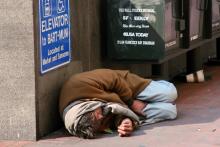Land Library
Welcome to the Land Portal Library. Explore our vast collection of open-access resources (over 74,000) including reports, journal articles, research papers, peer-reviewed publications, legal documents, videos and much more.
/ library resources
Showing items 37 through 45 of 320.The sustainable management of soils is crucial to achieving the Sustainable Development Goals. This is evidenced by the analysis of the role soils play across the proposed agenda. However, some key aspects have not been sufficiently considered so far.
The Sustainable Development Goals (SDGs) will amount to little unless backed by reliable indicators. Only with good metrics can the agenda be implemented and progress measured.
The Sustainable Development Goals differ radically from the current Millennium Development Goals in many aspects. Our author demonstrates the challenges that departing from a donor-oriented development framework poses – particularly for the North, and also with a view to its own development.
With reference to the “One World – No Hunger” Initiative, Stefan Schmitz shows how food policies can support the attainment of the Sustainable Development Goals and highlights the interdependencies between the individual goals and targets.
Meant well doesn’t always mean done well. The Sustainable Development Goals are all set to undermine themselves, Stephan Klasen maintains.
Is it right to attach financial values to nature and to incorporate that valuation into the post-2015 agenda? Will such valuation help to protect species diversity and ecosystems?
In the debate on climate change, it is frequently argued that the number of “climate refugees” is going to grow world-wide. So far, however, only little evidence has been provided of links between climate change, environmental changes and migration.
In Kenya, smallholders are improving the health of their families by growing local cereal varieties and indigenous vegetables. The use of traditional foods is even helping people with HIV/AIDS.
More than 30 years ago, the Swiss Agency for Development and Cooperation (SDC) started a post-harvest programme in Central America named “Postcosecha”. The significant impact that was still evident long after the project end also continues to exist after the cessation of external support.









